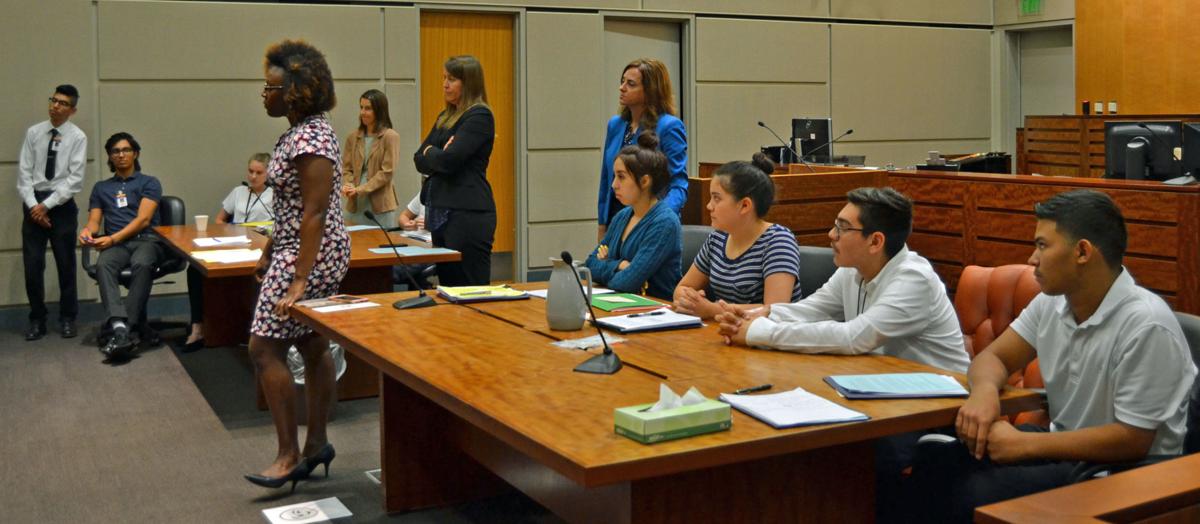A group of Tucson teens gathered downtown at U.S. District Court on Friday for a crash course in civil discourse and judicial literacy.
Currently offered only in some Florida courts and here in Tucson, the program Civil Discourse and Difficult Decisions saw United States Magistrate Judge Bruce MacDonald and a team of attorneys host about 30 students as part of Courts Are Us, a summer jobs program offered through Pima County Superior Court.
“We want them to understand, from a career perspective, there is a place for them here,” said Tamara Mulembo, assistant federal public defender and mentor for the day. “Whether it’s as a lawyer, a judge — there are many different roles that people play in the system — and there is a spot here for them regardless of their background.”
Students enrolled in Courts Are Us are paid minimum wage and are assigned jobs both in Pima County and Tucson city courts, with most students signing up through their high schools, according to Superior Court spokeswoman Krisanne LoGalbo.
Program participant and Cholla High senior Kassandra Ramirez signed up for Courts Are Us to stay busy during the summer months. Before the program, she saw herself going into a medical profession. Now she’s not so sure about that.
“I really started to think ‘Maybe I can become an attorney one day, or maybe I want to be a judge someday,’” Ramirez said. “And I like that; this is really cool.”
On Friday, Ramirez became part of the prosecution team in the case of Andrew Jackson, a hypothetical rapper and basketball player who made a series of ambiguous Facebook posts that made his ex-girlfriend and an archrival basketball player nervous and uncomfortable.
The students were tasked with determining if Jackson’s posts were threatening in a legal sense.
“What are the guidelines for something like this?” MacDonald asked one of the student defense attorneys. “How do we make a distinction on social media about what is and what isn’t a threat?”
After student attorneys for both sides presented their evidence and closing arguments, MacDonald asked student jurors to split themselves into two groups: those who supported the defense and those supporting the prosecution. At first the group was evenly split.
Mykhailo “Mishka” Polyakov, one of the student defense attorneys and a senior at Catalina Foothills, was convinced he and his team had done enough to exonerate the hypothetical Jackson.
“I didn’t think that the prosecutions’ arguments held any water,” Polyakov said. “I thought it would be too much of an infringement on free speech. … It would set a bad precedent.”
Mulembo and the other mentors then asked questions to challenge the stances members of the jury had taken.
“We’re here to introduce them to their role in this process,” Mulembo said. “To get them comfortable debating in public and understanding that in the justice system, they are the ones running things.”
With Courts Are Us graduation set for next week, Polyakov said the program has been integral in his gaining a better understanding not just of how the court system works, but why society is better off for having such a system.
“Especially now with the divisiveness in this country, to keep things civilized and peaceful we need to understand each other,” he said. “In a courtroom, you’re kind of forced to keep it respectful. You see how a civilized dialogue runs and you can apply that in your everyday life.”





